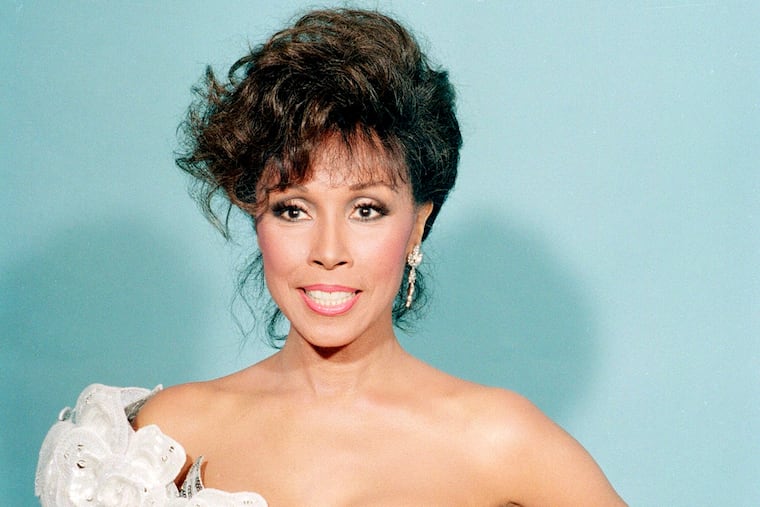Diahann Carroll was the crown jewel of beauty and black elegance | Elizabeth Wellington
Diahann Caroll always showed up on the scene 100 percent lady, complete with gloves, panty hose and respectable closed-toe pumps. She’d wear a cute little suit. Perhaps she’d wear a hat. And her lips would be that perfect nude with just a hint of gloss. The goal was class, beauty and elegance.

Back in the day, Diahann Caroll always showed up on the scene 100% lady, complete with gloves, pantyhose, and respectable closed-toe pumps. She’d wear a cute little suit. Perhaps a hat. And her lips would be that perfect nude, with just a hint of gloss. The goal was class, beauty, and elegance — to embody grace and style. And that’s what Carroll did.
Carroll, 84, the first black woman to star in a nonservant role in a TV series, died Friday at her home in Los Angeles after a long bout with breast cancer.
Carroll was the black version of Jackie Kennedy. Much like Diana Ross when she was the leader of the Supremes, Carroll inspired black woman to be glamorous. Her hair was always piled up into a perfect bouffant that never moved. She spoke slowly and deliberately, with an affected European accent that didn’t betray a trace of her Bronx upbringing. Carroll gestured with her hands and smiled with her eyes. She was the ultimate pretty girl.
Part of her theater training included her parents driving her to Philadelphia so she could be a contestant on the TV talent show Teen Club, hosted by bandleader Paul Whiteman. She dropped out of New York University in the early 1950s and began a career on Broadway. In 1962, she starred in Richard Rodgers’ No Strings and won a Tony, making her the first black woman to win the award for best performance by a leading actress in a musical.
In 1968, Carroll again made history when she landed the starring role of a widowed nurse in NBC’s groundbreaking drama Julia. Back then, very few black people were on television, and even fewer commanded lead roles. As Julia, Carroll was the first black actress who wasn’t a stereotypical mammy or maid. She was a single mother, yes, but she was a nurse whose husband died in Vietnam. And she dated good-looking and kind of well-off men too, like those played by actors Paul Winfield and Fred Williamson.
No wonder that when she came on, black folks would squeal with delight and come running into the only room in the house with a television. Carroll’s Julia was one of them. She was Clair Huxtable before Clair Huxtable. Carroll won a Golden Globe for best actress in a television series for Julia in 1969.
In 1984, Carroll became Dominique Deveraux on Dynasty. Deveraux was the surprise half-sister of oil tycoon Blake Carrington (played by John Forsythe). As Deveraux, Carroll became the first African American character with a major role in a prime time soap opera. She appropriately dripped diamonds and jewels. And she was bad. Her love interest was none other than the stone-cold cool Billy Dee Williams, who coincidentally also attended what was once New York’s High School of Music and Art.
Carroll went from being the symbol to which middle class black women could relate, to something they didn’t know they could be. Wrapped in designer gowns, of course.
I remember watching her as the mother of Whitley (Jasmine Guy) in the late 1980s on NBC’s A Different World and my mom stopped, iron in hand, saying, "Well, if it isn’t Julia.”
Carroll was cool and classy through the shoulder-padded 1980s and gold-buttoned-suit 1990s, cloaked in soft furs and cute fedoras. Her look was of the block’s most stylish beautician — all the ladies who used to press and curl our hair copied her style. Deaconess Rose copied it on Sundays. My black kindergarten teacher and pediatrician were no doubt inspired by her style. She was the classy black middle class working woman. That’s who they all wanted to be, right down to my own mom.